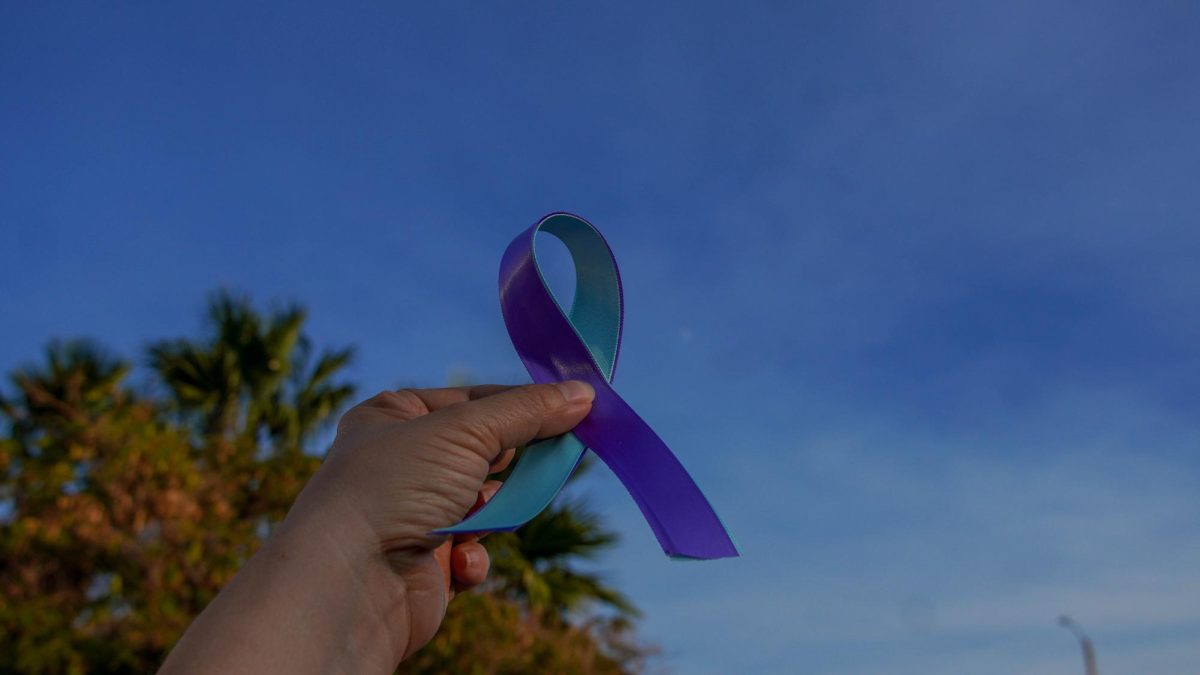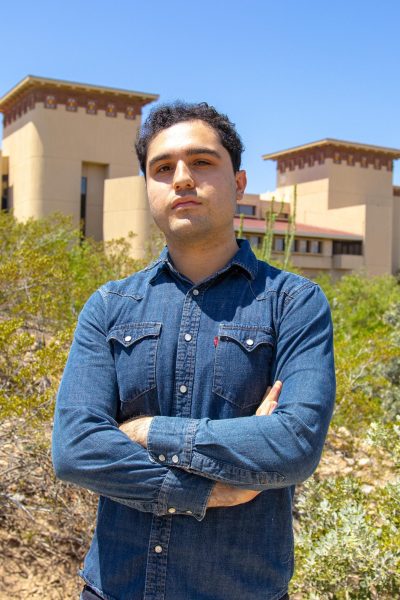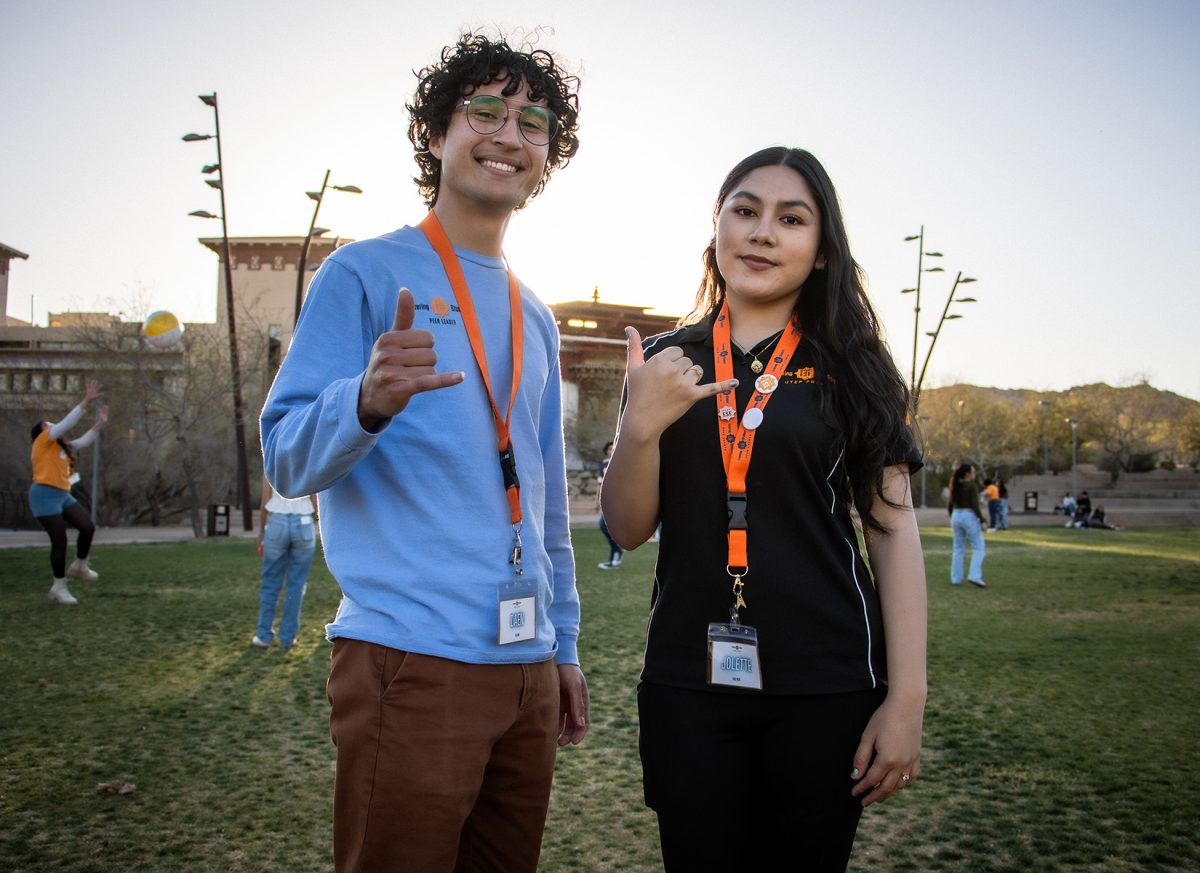September is Suicide Prevention Awareness Month, dedicated to remembering the lives lost to suicide, raising awareness of available resources, and sharing the stories of those affected.
According to the American Foundation of Suicide Prevention (AFSP), 24,000 college students a year attempt suicide and 1,100 students do not survive.
One resource UTEP offers is the Counseling and Psychological Services (CAPS) program.
CAPS doctoral intern Christy Merrill is pursuing her doctorate in clinical psychology and understands the importance of providing immediate support for students, which is why the program offers services for urgent situations, including a crisis line available after hours.
“If they’re coming feeling like suddenly really overwhelmed, experiencing a panic attack or any sort of crisis, we will see them,” said Merrill. “After hours we have something called Miners Talk and it’s also a crisis line. So, when we’re not open, students are able to call that hotline basically and get support in that way.”
Alexandria Lee is a doctoral intern with CAPS studying for her doctorate in clinical psychology. Lee shares how CAPS offers a resource that can be accessed by international students.
“There’s Timely Care, there’s a Talk Now service, so as long as you’re a student, you can use Talk Now, which you can access internationally,” said Lee. “If you just wanna get something off your chest or talk about, yeah, whatever’s on your mind, there’s, yeah, licensed counselors available 24/7, 365 on the phone or over text.”
CAPS offers appointment-based counseling which includes individual, group, or couples counseling.
As a doctorate student in clinical psychology and doctoral intern with CAPS, Loreen Magarino finds it enlightening to observe how students navigate mental health within their cultural backgrounds.
“It’s been really illuminating to see how students here are grappling with a number of aspects of their culture,” said Magarino. “So, like the family environment being a very tight knit family culture sometimes can be hard to, to navigate with.”
Lee discussed how in tight-knit family cultures such as Hispanic culture, the topic of suicide can be difficult to address and makes it challenging for students to seek help.
“On the topic of suicide prevention, that is something that is highly stigmatized in the family system,” said Lee. “So it might be hard for students to go to their families and be like, yeah, I’m going through stuff right now.”
With the pressures of classes, assignments, tests, and personal lives, the university environment can lead to mental stress and burnout. Magarino shared that acknowledging the effects of burnout on mental health is a crucial step in managing this stress.
“I think a really big part is like self-compassion. Being aware that those things impact you. Sometimes it might be really stressful and sometimes not, but it’s not, everybody goes through that and it’s pretty, making it more normal to say like, I’m not okay, I’m gonna get some support.”
Merrill states that one of the biggest messages to share during Suicide Prevention Awareness is to not be afraid to ask for help and that there will always be resources available.
“I think one of the big things that students should know is that it’s okay to seek out help, a lot of students don’t know where to go and so sometimes you can’t go to your friends or you can’t go to your parents,” said Merrill. “But you know, there are places on campus like CAPS where you have access to people, where you can go and talk about those things and get the help that you need.”
CAPS is located at 500 W University Ave., room 202 Union West. Students can contact CAPS through 915-747-5302 weekdays from 8 a.m. to 5 p.m. The after-hours crisis hotline is 915-747-0291.
Faculty and staff can contact CAPS if they are concerned with a student’s mental health or life situation. They also offer suicide prevention training and faculty can request a presentation for their class to share information on self-care, mental fitness, and academic success.
Other resources include Emergence Health Network, the local crisis line which can be reached at 915-778-1800 and the National Suicide and Crisis Lifeline at 988.
Ximena Cordero is a staff reporter and may be reached at [email protected]









